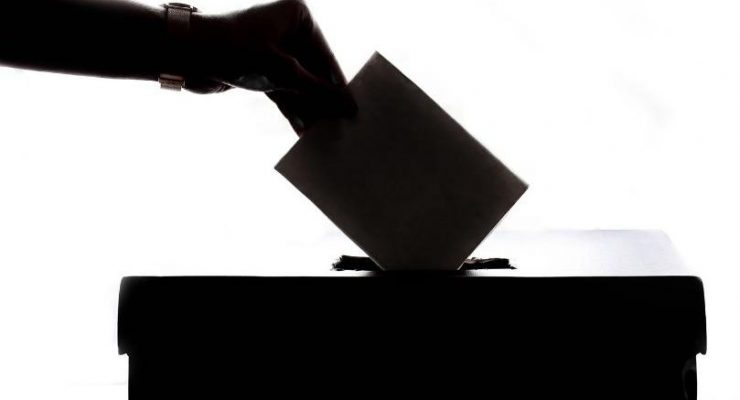Many sociological topics provoke heated political debates that can affect classroom dynamics. A common narrative in the current political discourse centers on perceptions that sociology instructors lack “political neutrality,” framing sociology classrooms as spaces where sociologists impose their own personal political beliefs and opinions on students’ learning. In this environment, what is the “political responsibility” of sociology instructors? How should we engage in conversations with students about sociological research that inevitably invites normative and political engagement? During our Engaging Elections: The Politics of Teaching as Public Sociology webinar, this theme emerged in our conversation with panelists.
Edwin Ackerman, for one, argued that the role of a professor in the classroom is different from that of writing an op-ed. Instead, he stressed the importance of giving students the tools they need for analysis. One key piece of this is to teach students how to make arguments using falsifiable statements.
“I don’t think it’s possible, and I don’t think it’s desirable to be nonpartisan in the classroom. But in a deeper sense, of course, there’s no point in asking the questions that sociology poses if it isn’t in the service of justice in some sort of broad sense. Right? I think that the [responsibility of the professor] could be something like moving away from…statements that are opinions to statements that are, for lack of a better term, falsifiable in the sense that there’s evidence that can be brought for or against them.” (Ackerman, 46:57).
This is not to say that we should approach political topics as if we hold an objective standpoint, but rather that we should rely on our own expertise to help students arrive at conclusions that are rooted in sociological research. Indeed, Ackerman reminds us that our positions in the classroom come from research, and teaching what sociologists know is a political intervention in itself.
Much of the time, however, students may be looking for the instructor to take a position. Students may enter the classroom primed with their own worldview and opinions that they hope the instructor will validate. Bradlow grapples with this:
“I think a lot of the way that the––dare I say––bourgeois sensibility that many students enter into the classroom with about politics is fundamentally expressive (…) And I think instead, a focus on the link between action and analysis suggest that the more Weberian tools that Edwin was describing should make the classroom a space where it’s not just about taking a position, which is in and of itself quite a leap for a young person to take, but to have tools to consider what are the actions and strategies and coalitions that are associated with taking that position.” (Bradlow, 53:02)
By providing students with the tools for analysis and the opportunity to use their sociological imagination, instructors can encourage them to engage political issues and to consider critically what it means to take a particular position. In this way, de Leon discusses how our pedagogies can encourage students to see themselves more as “agents of social change as opposed to people who simply accept authority” (de Leon, 48:49).
Importantly, the political responsibility of instructors may extend outside of instruction. De Leon asks us to consider the political responsibility and consequences of deep mentorship. He points out that there is a possibility for scholars to engage with their students in a way that creates a community of interest.
Mini Class Note: Setting community norms for respectful discussion
Johnnie Lotesta sets the tone for discussion of political topics in her classroom early, through careful attention to the language she uses in her syllabus and by deciding on community norms early in the semester. Specifically, she includes her own university’s policies on free speech in her syllabi, emphasizing it as a protection for all speech, including her own. At the beginning of the semester, she also has a discussion with her students about free speech, engaging in community norm setting exercises around speech in the classroom, and revisiting this throughout the semester. She asks her students to come up with ground rules for discussion and elicits their own values around engaging with other classmates. One value that is routinely offered by students is respect. As a result, in her classes she engages students in a discussion about what it means to have respect for others.
“I try to encourage [respect] among students by modeling that respect for [others’] opinions doesn’t mean that you treat all viewpoints as equally valid. It means, you respect the individual. You don’t engage in aggressive or retaliatory remarks. But we can be respectful while still critiquing the sort of logic, reasoning, and evidence base of arguments. And so, it’s … a principle we try to return to” (Lotesta, 1:16:35).
By setting norms about speech and critique early and revisiting these often, Lotesta helps to ensure that students can engage the arguments being made in class and critically assess the basis of political claims. In this way, Lotesta invites respectful yet critical sociological discussion on issues that may seem “too political.”
“[This can involve sitting] down with a young scholar and asking them: What do they think? What’s their vision? What do they want to do with their profession, with their life? How do they see the world? Even though that might not be overtly political… I think hopefully, I modeled a form of engagement with one’s students… that may have political consequences that we never see.” (de Leon, 50:49).
Powerfully, de Leon inspired us to think about how to bring a politics of care into teaching and mentorship and to consider the effects we may have on students in the years beyond when they are in our classrooms.
We want to hear from you! How have you come to understand your political responsibility as an instructor? What strategies have you implemented to approach inherently political topics in the classroom? Share your ideas and experiences with the First Publics’ community in a Reflection and Class Note!


Comments